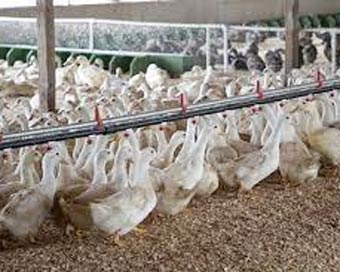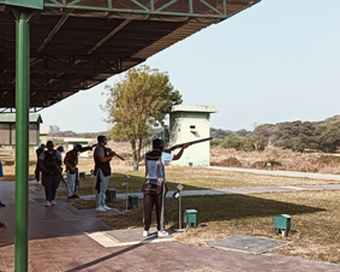 PM Modi visit USA
PM Modi visit USA Only the mirror in my washroom and phone gallery see the crazy me : Sara Khan
Only the mirror in my washroom and phone gallery see the crazy me : Sara Khan Karnataka rain fury: Photos of flooded streets, uprooted trees
Karnataka rain fury: Photos of flooded streets, uprooted trees Cannes 2022: Deepika Padukone stuns at the French Riviera in Sabyasachi outfit
Cannes 2022: Deepika Padukone stuns at the French Riviera in Sabyasachi outfit Ranbir Kapoor And Alia Bhatt's Wedding Pics - Sealed With A Kiss
Ranbir Kapoor And Alia Bhatt's Wedding Pics - Sealed With A Kiss Oscars 2022: Every Academy Award Winner
Oscars 2022: Every Academy Award Winner Shane Warne (1969-2022): Australian cricket legend's life in pictures
Shane Warne (1969-2022): Australian cricket legend's life in pictures Photos: What Russia's invasion of Ukraine looks like on the ground
Photos: What Russia's invasion of Ukraine looks like on the ground Lata Mangeshkar (1929-2022): A pictorial tribute to the 'Nightingale of India'
Lata Mangeshkar (1929-2022): A pictorial tribute to the 'Nightingale of India' PM Modi unveils 216-feet tall Statue of Equality in Hyderabad (PHOTOS)
PM Modi unveils 216-feet tall Statue of Equality in Hyderabad (PHOTOS)India Open Competition in Shotgun, organised by the National Rifle Association of India (N
- Hockey India names Amir Ali-led 20-man team for Junior Asia Cup
- Harmanpreet Singh named FIH Player of the Year, PR Sreejesh gets best goalkeeper award
- World Boxing medallist Gaurav Bidhuri to flag off 'Delhi Against Drugs' movement on Nov 17
- U23 World Wrestling Championship: Chirag Chikkara wins gold as India end campaign with nine medals
- FIFA president Infantino confirms at least 9 African teams for the 2026 World Cup
US BIrd Flu: Bird flu outbreak at US dairy farms cause public health concerns Last Updated : 22 Jun 2024 12:37:35 PM IST 
US BIrd Flu, Bird flu outbreak at US dairy farms cause public health concerns The ongoing bird flu outbreak at US dairy farms has heightened concerns among public health experts as more dairy herds have tested positive for the virus in recent months.
The influenza A (H5N1) virus, commonly known as bird flu, is widespread in wild birds worldwide and has been circulating in US poultry since 2022, reports Xinhua news agency.
However, the situation escalated in late 2023 when the virus is believed to have jumped from birds to dairy cows at a Texas farm.
This was followed by a human infection in April linked to exposure to infected cattle. To date, three human cases of infection have been reported, bringing the total number of US H5N1 cases to four, including one case in 2022 linked to poultry exposure, according to the Centers for Disease Control and Prevention (CDC).
The virus had been confirmed in at least 115 dairy herds across 12 states as of Thursday, according to the latest tally posted on the US Department of Agriculture's Animal and Plant Health Inspection Service website.
In a new study funded by the National Institutes of Health (NIH), researchers found "small, detectable amounts of infectious (H5N1) virus remained in raw milk samples with high virus levels" when treated at 72 degrees Celsius for 15 seconds -- one of the standard pasteurisation methods used by the dairy industry, according to an NIH press release last week.
The CDC noted that while the current public health risk is low, it is watching the situation carefully and working with states to monitor people with animal exposures.
But public health experts have paid attention to the government's slow response and inadequate testing.
"Failures in testing continued. This was a serious problem in the early months of COVID-19, in mpox, and now with H5N1. There will be future disease emergencies -- we have to do better," wrote Gigi Gronvall, an immunologist, on social media X on Thursday.
Gronvall, an associate professor at Johns Hopkins Bloomberg School of Public Health, called for a public-private partnership between the government, test developers, and clinical laboratories to streamline testing rollout and information sharing at the beginning of an event.
The World Health Organization considers bird flu a public health concern, as these viruses, including the H5N1 strain, can result in mild to severe illness and death and have the potential to mutate to become more contagious, says the organisation on its website.
While infections have been confirmed in cattle across the country, only 45 individuals have been tested for novel influenza A since March, with 550 under monitoring, according to the CDC's latest update on June 14.
Aside from the limited availability of bird flu tests, experts said the low trust of farm owners and farm workers towards the government also makes it difficult to detect potential cases.
"The United States' response to H5N1 -- 'bird flu' -- has taken too long, showing how risky gaps in coordination and trust can be," wrote Tom Frieden, former director of the CDC, in an analysis published by CNN on Tuesday.
"Trust toward the United States government is low, especially among rural Americans who are on the front line of these outbreaks," added Frieden, president and chief executive of Resolve to Save Lives.
Many dairy farm workers in the United States are undocumented immigrants or migrants who may distrust the government or be hesitant to miss work if they test positive, CDC Principal Deputy Director Nirav Shah told Axios in a Tuesday report.
Despite the allocation of federal funds to incentivise farm cooperation, no farms have enrolled in the voluntary on-site milk testing program, according to the US Department of Agriculture.IANS Los Angeles For Latest Updates Please-
Join us on
Follow us on








172.31.16.186







